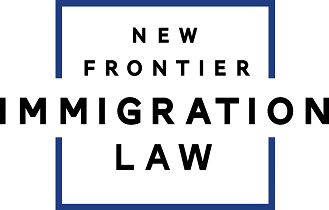
It is natural to wonder, “How long does USCIS take to respond to an RFE?” When you submit an immigration application, such as a green card or adjustment of status request, you may receive a Request for Evidence (RFE) if USCIS requires additional documentation to process your case.
On average, after you submit the requested evidence, USCIS may take 60 to 90 days to review the RFE response and issue a decision. However, processing times can vary based on your specific case and the type of immigration benefit you’re applying for. Working with a Phoenix immigration lawyer can help ensure your response is complete and submitted on time, potentially speeding up the process.
Requests for Evidence (RFE) Explained by an Immigration Lawyer
So, what exactly is a Request for Evidence (RFE)? It is a formal notice from USCIS requesting additional documents or proof to continue processing your immigration application. An RFE typically indicates that your initial submission lacked some required evidence, such as a birth certificate, marriage certificate, or other documents that prove your eligibility for the requested immigration benefit.
Receiving an RFE does not mean your application will be denied—it simply gives you the opportunity to provide the missing or additional evidence.
What Type of Information Does an RFE Request?
In an RFE, the U.S. Citizenship and Immigration Services (USCIS) clearly outlines the specific information needed and provides a response deadline by which you must submit the requested evidence. The response might require primary documents, such as original documents or certificates, or secondary evidence in cases where primary documents are not available.
USCIS may also request documents that address your relationship, such as bank statements, DNA evidence, or other reliable evidence that demonstrates eligibility for your green card or visa.
What Are the Most Common Reasons for a Request for Evidence?
Some of the most common reasons for an RFE include:
- Missing or incomplete documents, such as financial documents or proof of a biological family relationship.
- Lack of sufficient evidence of a fide marriage in marriage-based green card applications.
- Issues with foreign or country-specific documents, such as invalid divorce certificates or incomplete translations.
Receiving an RFE can feel overwhelming, especially since it affects your application’s processing time. Consulting an immigration lawyer can help you ensure your RFE response is thorough and submitted within the required time frame.
For a free case review with an Immigration lawyer, call
How to Respond to a Request for Evidence
When responding to an RFE, it’s essential to provide the specific evidence USCIS requests. Carefully review the RFE to understand what documents or proof are missing, and gather all the necessary documentation.
This could include marriage certificates, birth certificates, financial documents, or employment history records. If USCIS is asking for additional evidence for a marriage-based green card application, you may need to submit further proof of a fide marriage, such as bank statements, joint leases, or other reliable evidence.
Here are the steps to follow when responding to an RFE:
- Carefully read the RFE: Understand the specific evidence or documents USCIS is asking for. If there are multiple requests, create a checklist to ensure everything is included.
- Gather all requested documents: Whenever possible, provide primary evidence, such as government-issued birth certificates or proof of a family relationship. If primary documents are unavailable, submit secondary evidence, such as sworn statements or DNA evidence.
- Organize your response: Include a cover letter summarizing your response and list the documents you are submitting. Be sure to attach clear, legible copies of each document and any translations needed for foreign documents.
- Meet the response deadline: It’s important to submit your response by the deadline stated in the RFE. Failing to do so can result in delays or a denial of your application.
Remember, even when your RFE gets approved, there are still important aspects you should pay attention to. On the other hand, if your response is incomplete or late, it could negatively impact your immigration benefit request. Reaching out to an immigration attorney can help you ensure your submission is accurate and complete.
Things You Need to Know About Requests for Evidence
If you’ve received a Request for Evidence (RFE) from USCIS, understanding how to respond is essential for the success of your immigration application. Here are some important things you need to know about RFEs:
An RFE Does NOT Mean Your Application Is Denied
Receiving an RFE simply means that USCIS needs more information or additional evidence to make a final decision on your case. It could be a request for documents like a marriage certificate, birth certificate, or financial documents. This is an opportunity to strengthen your application by providing the necessary evidence.
You Must Respond Within the Given Timeframe
The RFE will include a response deadline, and it’s important to submit the requested evidence before this date. Delays or late responses can result in the denial of your immigration benefit request. Make sure to follow the instructions carefully and provide all the required documents.
Primary Evidence Is Preferred, but Secondary Evidence Is Accepted
USCIS prefers primary evidence, such as original or government-issued documents like a U.S. birth certificate or a marriage certificate. If these are not available, secondary evidence like affidavits or DNA evidence may be submitted. Be sure to provide clear copies and translations if necessary.
If you’re unsure how to respond or what evidence to include, consulting an experienced immigration lawyer can be helpful. They can guide you through gathering the right proof and ensuring your response is strong and complete, improving your chances of approval.
Our immigration lawyers
A Phoenix Immigration Lawyer Can Answer Your Questions About an RFE
If you’ve received a Request for Evidence, it’s important to act promptly and provide the right information. An experienced immigration attorney can help you understand what is required, ensure your response is complete, and represent you if any issues arise. Remember, legal representation can ensure your case is handled efficiently.
If you have questions about the RFE process, the required evidence for benefit requests, or concerns about the timeframe for your immigration case, an immigration lawyer at New Frontier can provide the support and legal advice you need. Don’t hesitate to reach out for guidance on your immigration journey and ensure that your response to USCIS is timely and accurate.






